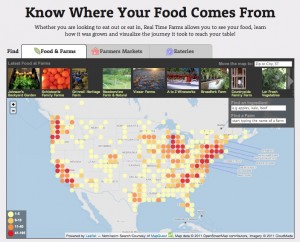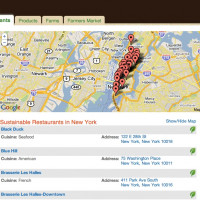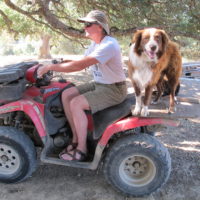Bon Appétit Management Company, which operates more than 400 cafés for companies including Twitter, Yahoo! and eBay, announced Tuesday the rollout of a comprehensive farm animal welfare policy that could make significantly more information about growing practices available. Bon Appétit plans to source 25 percent of its meat, poultry and egg purchases companywide from producers certified by Animal Welfare Approved, Food Alliance, Humane Farm Animal Care and/or Global Animal Partnership by 2015.
Increased Transparency
As an industry leader with significant purchasing power, these commitments set an important precedent for increased transparency through certification, and with it an opportunity to open up data that has been largely unavailable.
At least 25 percent of the farmers and ranchers who want to work with Bon Appétit will need to go through an audit to obtain certification from one of the aforementioned third-party certifiers. This will likely lead in an increased number of farmers applying for certification, resulting in more data about growing practices being captured. Information collected through audits includes living conditions, nutrition and animal management; as well as topics such as farm size, number of livestock and where the livestock are being sold.
Most of this data is currently private. If made available for developers to integrate into platforms like Real Time Farms and Foodtree, however, this data could help consumers better “know where our food comes from.” This is important, because stories about food provenance are only as good as the quality and comprehensiveness of their data, which often lacks growing practices.
Privacy Concerns
For this to be feasible, however, third-party certifiers must determine how to make the data available to the public without compromising a farmer’s privacy.
Animal Welfare Approved (AWA), for example, has a very strict privacy policy and does not share individual data without a farmer’s consent.
Still, Program Director Andrew Gunther, believes it is possible for them to work with farmers and groups to share some of their data that would benefit the greater good.
“The challenge is figuring out how to navigate privacy concerns. For example,competitors could undercut prices or take over markets if they had free access to other farm or ranch data. But understanding potential volume of production; areas of distribution and other topics could help farmers and groups to work together to cooperatively expand their markets,” remarked Gunther.
“It’s all about working with the farmers and ranchers to find solutions they feel comfortable with. At the moment the vast majority of approved farmers have agreed to participate in the AWA online product search database which allows consumers to search for particular products or farms in a region.”
Exploring Data Opportunities to Share Data
While AWA does not have an API, they are very interested in exploring ways to share their data. As a 501(c) (3) with limited resources, they don’t have the technical staff to build apps or even turn data into a format that others could build upon. How do you think they could manage these privacy concerns and extend the reach of their rich data?
** Main image by Ulla Kjarval.






